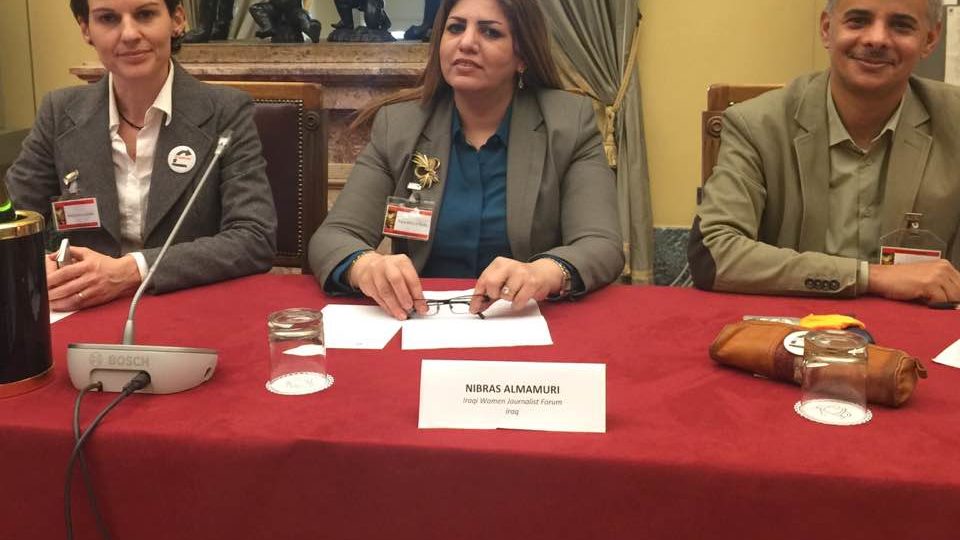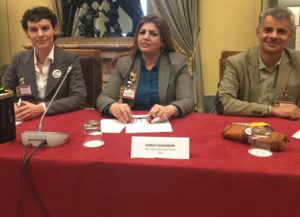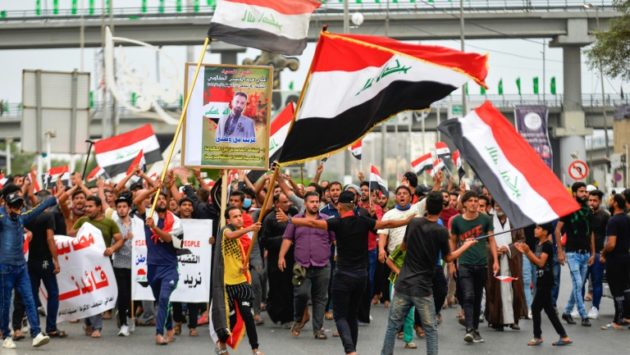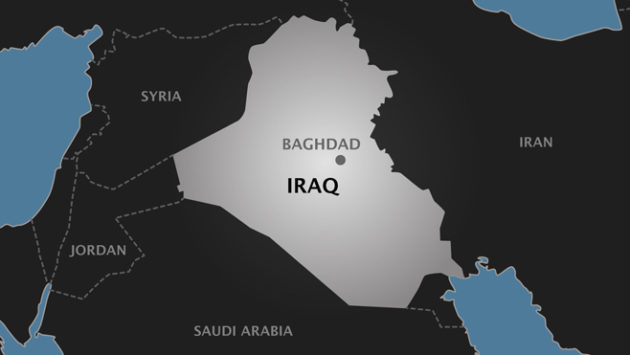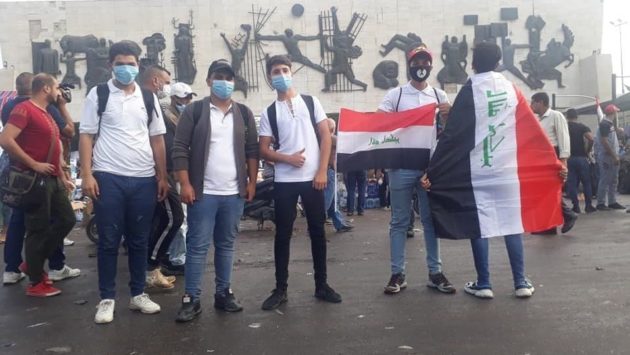The Reality of Women Human Rights Defenders in Iraq at the End Of 2016
Nibras Al-Maamouri – Head of the Iraqi Women Journalists Forum (IWJF)
Since 2003, Iraqi women have worked tirelessly to make their presence felt in the field of human rights in Iraq, but security issues and political corruption have impeded advancements of women human rights defenders, including journalists. The murder of Atwar Bahjat represents an important symbol of their struggle and suffering.
Civil movements and nonviolent demonstrations emerged as a response to the deteriorating conditions in Iraq at the beginning of 2011. Protestors called for improved services for the Iraqi people, the elimination of corruption and rule of law. A group of women human rights defenders participated in this movement, especially those carried out in Tahrir Square in Baghdad. I was there, and was beaten by riot police because of my participation.
In 2015, demonstrations started again. At one, a group of disguised security forces harassed women demonstrators on a bus and attacked those who were escorting them. Though terrified, the women defenders did not back down from their position. In fact, they continued voicing their objections, and insisting on their rights. Some present at the demonstration raised signs and banners, including one which stated: Beating women in Tahrir Square only increases our will to effect change!
Since that day, journalists, legal experts, academics and defenders of women rights continue to be subjected to harassment. This has prevented a large number of human rights organizations, both local and international, from engaging in activates central to their work. As a result, many organizations have moved most of their staff out of Iraq
In August 2016, the following human rights defenders were kidnapped and arrested: Jalal Al-Shahmany, Wa’ay Almansory, Ali Al-thebhawy, Reah Abd Alhadi Alshabany (member of the coordinating Democratic Movement), Laqthaa Alshmya, and a protestor from Karbala, Fadwan Alwazeny. And there are others, two of whom (Ali and Wa’ay) are still missing.
Women human rights defenders in Iraq are still face harassment, and are particularly vulnerable for a number of reasons, including:
– discrimination on the basis of gender
– social and cultural oppression growing out of traditional practices which imprison women within certain fixed and stereotypical roles, effectively locking them into a limited domestic framework
– reaction to the fact that women are challenging accepted norms and cultural traditions, in hopes of improving their civil and political rights
– reaction to the fact that women have been providing protection to vulnerable girls and women, such as those most threatened by ‘honour crimes’
Women human rights defenders focus on gender equality and ending discrimination and violence against women. In July 2015, in the province of Najaf (specifically, the Najaf Identity Directorate) the passport of the activist Intssar Alawy Hassan was rejected due to her photo which pictured her without Hijab (Hair Cover ). This arrest forms a dangerous precedent.
In August 2015, a group of civilians attacked civil activists and protestors during nonviolent demonstrations in Tahrir Square in central Baghdad using their hands, knives and in some cases, scissors. The protestors were calling for social and political reform.
In February 2016, I received anonymous death threats, asking me to leave my career in the media and cease from doing civil work altogether. Some people used social media to fabricate stories accusing me of terrorism and working with extremist groups from outside the country.
On April 6, 2016, the civil activist and member of the Kurdish Red Crescent, Pervan Zein, was arrested by Kurdistan Regional Government authorities without charge. In July 2016, the activist, Khulode al-Tai, who had been displaced from the city of Al-Anbar because of its occupation by Daesh, was harassed by some groups from the city of Babylon.
October 12, 2016, activist, Tara Hussein, was arrested by security forces in the Kurdistan region after participating in a press conference criticizing the political views of Erdogan about Iraq.
In addition to threats and violations from the Iraqi government and its agencies, women human rights defenders are also exposed to great risks by terrorist organizations. On September 17, 2014, a lawyer and human rights activist, Samira al-Nuaimi, was arrested by Daesh groups in Mosul because of criticisms she posted on its Facebook page. Daesh convicted her and she was executed by firing squad.
Dozens of women have been forced to appear in front of Daesh’s “Sharia Court” in Nineveh (often merely because they wore make up, fell in love, or chose not to wear the hijab). Daesh has executed a large number of women, including
three doctors:
Inas Khattab,
Suad al-Tai,
Ban Abdul Aziz;
the lawyer, Najla Omari;
the Deputy Attorney General and member of parliament, Ibtihal Younis Al-Hayali,
and activist Eman Mohammed Salman; and
the University professor, Hana Fakhry al-Baghdadi.
Also found was a mass grave containing the remains of six women who had been killed earlier in the forest area surrounding Nineveh.
The Iraqi government’s inability to protect human rights defenders, and its feeble attempts to apply those laws that might protect them, has created virtual impunity for perpetrators. The judiciary itself has contributed to the notion that a human rights defender is an easy target. But ultimately, it is the lack of clear laws established to protect journalists which is the primary cause of their vulnerability and suffering.
Recommendations for Europe:
-issue statements calling for the Iraqi government to protect human rights defenders
– make the protection of human rights defenders a central issue in dialogues between EU countries and Iraq, and stress the need to make Iraqi legislation compatible with international standards.
– urge European diplomatic missions to hold meetings with human rights defenders in Iraq to know more about the conditions they face
-organize regular meetings between European organizations and Iraqi civil society groups in order to exchange experiences and develop new strategies and approaches for the protection of human rights defenders
– use regional and international conventions and other mechanisms (laws, norms, agreements) already at work in other countries to strengthen and enlarge the capacity of both non-governmental organizations and individuals who defend and promote human rights

